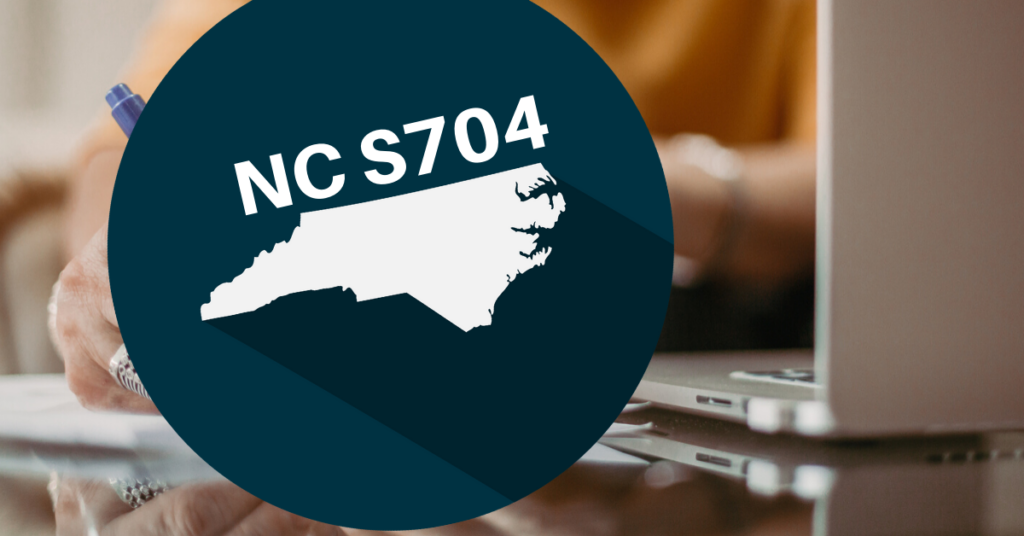
Estate Planning and North Carolina Temporary Emergency Video Notarization
Over the past few months, life has changed dramatically for a majority of North Carolinians. Due to the COVID-19 pandemic, the need for individuals to have estate planning documents, including a will, durable powers of attorney, health care powers of attorney, and advance directives, has become apparent. However, after Governor Roy Cooper’s stay-at-home order went into effect on March 30, 2020, executing estate planning documents became difficult since an individual signing the documents is required to do so in front of witnesses and a notary. Most of the time, the signing requirements are accomplished by visiting the law office that drafted the estate planning documents.
To help alleviate this impediment and keep individuals safe, the North Carolina General Assembly passed, and the Governor signed, Senate Bill 704 to temporarily allow all notaries public to perform emergency video notarizations until August 1, 2020. Also, Senate Bill 704 allows for witnesses of documents to remotely witness a signature of a record through video conference technology. For estate planning documents, this means that individuals will be able to execute their documents without having to visit the law office and risk potentially catching COVID-19. For a notary public to notarize a document of a principal signer through video conference technology, the following must be adhered to:
- The video conference technology must allow the parties to have direct, real-time interaction between the principal signer and the notary. Senate Bill 704 does not allow for pre-recorded video and audio.
- The audio must include sound clear enough that each participant in the notarial act can hear and understand all other participants.
- The video quality must be sufficient to allow a clear and unobstructed visual observation of the face of each participant, and any identification provided by the principal for a sufficient time to allow the notary to determine if it is satisfactory evidence.
- Unless personal knowledge of identity is used for identification purposes, the principal signer must have an acceptable form of identification, which they will hold up to the video recording device long enough to allow the notary to confirm the form of identification meets the requirements of satisfactory evidence of identity. For satisfactory proof of the identification of the principal, the form of identification used must:
- be current or, if expired, did not expire before March 10, 2020
- be issued by a federal, state, or federal or state-recognized tribal government agency
- contain a photographic image of the principal’s face
- include both the principal’s signature and a physical description of the principal
- Each principal signer must verbally state what documents are being signed for the notarial record and indicate that they are physically located in the state of North Carolina and identify the county where each principal signer is located at the time of the notarial act.
- The notary shall use video conference technology to observe each principal sign the document to be notarized.
- If an original wet-signed notarization on an original wet-signed document is not required, the principal will transmit a legible copy of the signed document to the notary by fax or other electronic means on the same day it was signed. The notary shall notarize the document on the same day the notary receives the document, and the notary shall transmit the notarized document back to the principal or the principal’s designee by physical delivery, fax, or other electronic means on the same day the notary signed the document.
- If an original wet-signed notarization on an original wet-signed document is required, the principal will transmit a legible copy of the signed document by fax or other electronic means to the notary on the same day on which the document was signed and also deliver the original signed document to the notary by mail or another physical method. The notary shall compare the original document with the document transmitted by fax or other electronic means. If the faxed or electronic document is the same as the document received by mail or physical delivery, the notary shall notarize the wet signature on the original document and date the notarial act as of the date of the act observed using video conference technology and promptly transmit the original wet-notarized original document to the principal or the principal’s designee by mail or other physical delivery as directed by the principal.
In addition, some estate planning documents, like a will, require witnesses to be effective. Under Senate Bill 704, a witness to a document shall be considered to have signed such document in the presence of the principal signer IF the following are satisfied:
- The video conference technology allows for direct, real-time audio and video interaction between each principal signer and the witness, and the signature of the principal signer is witnessed by the attesting witness.
- The attesting witness immediately thereafter signs such record while the video conference technology still allows for direct, real-time audio and video interaction between the principal signer and the attesting witness.
If you have been putting off estate planning during the COVID-19 pandemic due to in-person meetings and signings, the Senate Bill 704 will provide an opportunity to complete your documents without exposing yourself to the risk of COVID-19.
